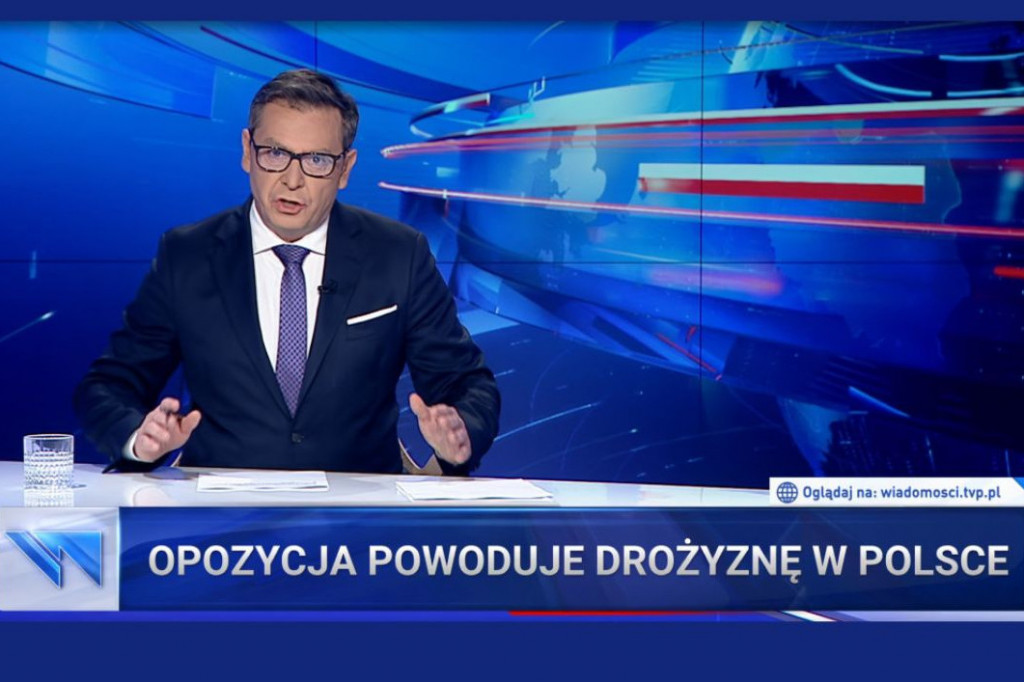The Lex Pilot Project Withdrawn from the Sejm. “PiS Knows That it Will Not Make it Before the Elections”

An important group of PiS politicians concluded that they would not be able to introduce the “lex pilot” before the autumn parliamentary elections, according to Robert Kwiatkowski, former president of TVP and MP from the Democratic Left parliamentary group. On Friday, April 21, the bill was withdrawn from the Sejm. “This idea to strengthen TVP’s position proved too risky and costly. We will likely not revisit it, even if we win the elections,” say sources within PiS.
“It is uncertain whether the ‘lex pilot,’ which treats business entities unequally and enables the seizure of TVN, would be signed by President Andrzej Duda. Even if it were to happen, changing the channel numbers for individual stations would take at least several months,” notes Dr. Adam Szynol, a media expert from the University of Wrocław. “After all, cable TV operators have contracts with broadcasters that guarantee the positions of specific channels. Possible changes cannot be made from week to week.”
Non-aggression pact with Polsat
Szynol concurs with the opinion that PiS has realized there isn’t enough time. In his view, the withdrawal of the right wing from the project is related to the fear of a potential election defeat.
However, it seems that even after a possible victory of the United Right in the parliamentary elections, no one intends to return to the “lex pilot” idea. “The president will still be Andrzej Duda, who is unlikely to sign a bill that is clearly directed against TVN. There is also another reason why no one will want to revisit the idea. The ‘lex pilot’ weakened the position of all private broadcasters, including Polsat, with whom we have a sort of non-aggression pact. No one will break it, even if we win the upcoming elections,” says a United Right member, requesting anonymity.
As we reported in “Presserwis,” since December of last year, the United Right pushed through a law strengthening Telewizja Polska’s position relative to private broadcasters. The government added a proposal for radical changes to satellite platforms and cable TV operators to the draft of the Electronic Communications Law, adapting Polish regulations to the European Code of Electronic Communications.
In the project dubbed “lex pilot,” TVP channels (TVP 1, TVP 2, TVP 3, TVP Info, and TVP Kultura) were subject to the rule requiring them to occupy the top five positions among operators. Subsequent spots were reserved for other terrestrial TVP stations.
In official statements, Paweł Lewandowski, the undersecretary of state in the Chancellery of the Prime Minister, responsible for digitization, explained that the changes would make access to public television easy and universal because channels would occupy the same positions in different parts of the country, eliminating the need to search for them.
The result of the calculations of the ruling camp
Opposition politicians had, and still have, no doubts that the rationale behind the provisions was entirely different. “It was about strengthening the position of public television in relation to private ones in the context of the upcoming parliamentary elections,” says Robert Kwiatkowski, an MP from the Democratic Left parliamentary group, working in the parliamentary committee on digitization, innovation, and modern technologies.
In March this year, the government unexpectedly began to back away from the project. At the end of the month, the draft act was entirely rejected by the Sejm digitization committee. And last Friday, it was withdrawn from the Sejm.
“The project will not appear in this term of the Sejm,” says Robert Kwiatkowski. “It’s a calculation. Inside the ruling camp, the belief that the ‘lex pilot’ provisions cannot be implemented before this year’s parliamentary elections began to prevail. PiS considered sticking to the project as unprofitable because it exposed itself to criticism from the majority of circles associated with the broadly understood world of the media. The potential gains of a political nature have apparently been assessed as too distant in time and uncertain,” says the former TVP president.
“The United Right has shown many times that by working overnight, the Sejm controlled by this party can push through the law at an express pace,” says Adam Szynol.
In his opinion, there is one more reason why the United Right politicians decided to abandon the project. “At best, the changes could be introduced just before the elections. If they lose, the current opposition would gain an instrument to crush those who rule Poland today,” the media expert points out.

